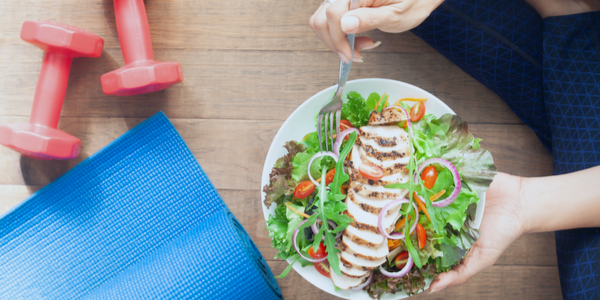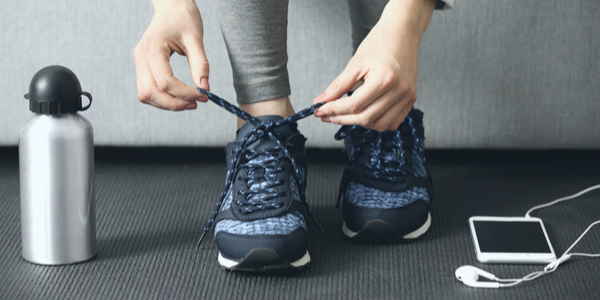
Are you working out but gaining weight? You may not the only one. Though individuals generally seek out exercise to optimize health and lose weight, there may actually be a link between exercise and weight gain. But how could this be so? Isn't that the opposite effect of what should be occurring? Researchers and health experts are exploring the link between exercise and weight gain!
Is Your Workout Making You Gain Weight?
If you answered yes, you more than likely have some sort of frustration and may feel defeated. Weight gain following consistent workouts can reduce motivation and increase the urge to resort back to unhealthful tendencies. So how is the phenomenon possible and how can we prevent backtracking?
One core justification behind exercise and weight gain relates to overcompensation. Individuals may be rewarding themselves with food after a workout and taking in more calories than what were actually burned. This occurrence also relates to incentive motivation psychology, also known as the incentive theory of motivation, and is essentially the motivation towards rewards. Individuals are commonly driven by desires or external rewards, ultimately influencing behaviors to achieve those incentives. When it comes to workouts, individuals may seek out food as a reward and overcompensate on high caloric foods.
Additionally, studies actually suggest those who perceive workouts as fun are less likely to overeat compared to individuals who see workouts as a punishment. On three occasions, research has shown framing a workout as fun versus exercise led to: reduced side dish calories during a meal, less hedonic foods (foods consumed to obtain pleasure despite the absence of an energy or calorie deficit), and the influence of a healthy snack. Each occurrence can be a key outcome to reach and maintain a healthy weight and body mass index (BMI).
Combatting Exercise and Weight Gain
Though rewards and views of exercise vary among individuals, tips can help reduce the potential for weight gain following consistent workouts:
Non-Food Rewards
Instead of treating yourself to a big bowl of ice cream or chocolate cake after workouts, start to restructure rewards. One way to stop food as a reward may be with a tally or money system. For instance, after each workout place a dollar in a jar. Set a goal or prize for yourself such as a new pair of running shoes or shorts. Once the jar is filled with the needed amount, go out and make your rewarding purchase!
Eat for Health
It is, though, sometimes important to replenish the body with adequate nutrition following a workout. Specifically, a combination of healthy carbs and protein assists in energy repletion and muscle growth. So instead of reaching for a sugary treat, opt for more nutritious foods. Post-workout ideas include chocolate milk, cottage cheese, Greek yogurt, veggies and hummus and peanut butter.
Exercise for Fun
Though exercise benefits health, it should not be considered a chore. Working out should and can be enjoyed! If running miles on a treadmill seems daunting, don't do it! There are so many options to getting active that you should not feel limited to workouts you do not like to do. Taking a hike, partaking in a group class, or playing a competitive sport are just a few workout alternatives that are still beneficial. Additionally, reframe exercises by listening to favorite music or talking to a friend during a walk.
Reference:
Werle CO, Wansink B, Payne CR. Is it fun or exercise? The framing of physical activity biases subsequent snacking. Marketing Letters. Available at: http://link.springer.com/article/10.1007/s11002-014-9301-6.







